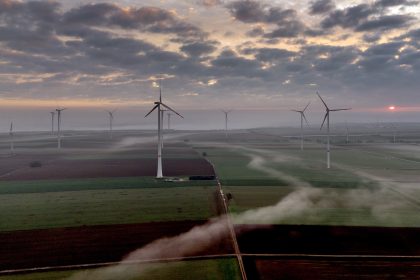Papers Claim Time for Tackling Climate Change Is Now

WASHINGTON — While the economics of climate change is a very nuanced topic, scientists and economists have recently released a pair of papers attempting to prove not only that climate change is an economic issue, but there is an economic case for tackling the issue now.
“Action now is better than waiting, in terms of impacts,” Irene Monasterolo, professor of Climate Finance at the EDHEC-Risk Climate Impact Institute, explained as she discussed Glenn Rudebusch’s paper, “Climate Policy Curves: Linking Policy Choices to Climate Outcomes.” Rudebusch is with the Brookings Institution, a D.C.-based research group.
Monasterolo called the paper an “analytical work to advocate for early climate policies in the form of a carbon tax.” The paper introduces the concept of climate policy curves to quantify the inverse relationship between carbon prices and future temperatures, and emphasizes that policy choices and climate change are connected.
“The point is to try to impress on people that connecting policy investment to outcomes is crucial,” Rudebusch explained. “Climate policy action comes at the cost of much more mitigation burden for future generations.”
Similarly, Tobias Adrian’s paper, “The Great Carbon Arbitrage,” examines the economic case for moving sooner rather than later to phase out coal as an energy source.
Phasing out coal for renewables is “not just a matter of urgent necessity, but it’s a source of considerable economic gain,” posited Adrian, financial counselor and director in the Monetary and Capital Markets Department at the International Monetary Fund.
Despite the fact that there will be a great number of people and businesses in the supply chain affected by a coal phaseout, Adrian said his paper proves that it is “the economically right thing to do.”
“How much would the world benefit from phasing out fossil fuels and replacing them with renewable energy, that is the question,” Adrian said. Using a company-level data set to sum up the phase-out of emissions and valuing them at the social cost of emission (carbon tax), Adrian found an “enormous, enormous source of economic gain … and 2-degree impact on temperature change.”
In fact, he found that America’s GDP could increase by 1.3% year over year by phasing out coal.
And if readers of his paper don’t agree with where his survey data was taken, Carolyn Fischer, research manager on the Sustainability and Infrastructure team in the Development Research Group at the World Bank, who discussed the paper’s findings with Brookings, agreed that whatever the numbers used, “fundamentally, it’s going to be really hard to change that this is an order of magnitude difference between benefits and costs,” and the argument for phasing out coal wins every time.
Even for those companies or countries for which the individual benefit might not exceed the costs of phasing out coal at this moment, and whose continued use of fossil fuels would create negative externalities for all participating nations, Adrian said it made sense to create reasons for it to be in their best interest as well, and not just because their noble effort could save the planet.
Adrian said it would be sound economic logic to compensate them for losses incurred and any investments they might make toward creating new infrastructure and scaling new markets.
“Some countries have benefits that are lower than costs from their perspective,” he said. “That’s when you have to come up with financing arrangements to get everybody on board.”
Kate can be reached at [email protected]
























